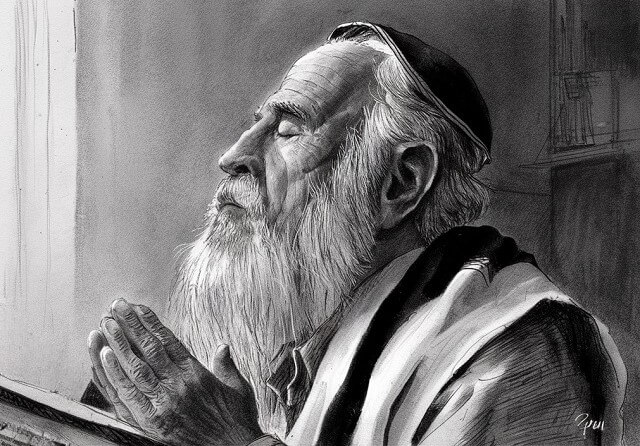
Pinchas... zealously avenged My cause among the Israelites.... Therefore, tell him that I have given him My covenant of peace. (Num. 25:11-12)
Why did God present Pinchas, the archetypical zealot, with a covenant of peace? What was the nature of this covenant?
Heretics and Informers
The Talmud (Berakhot 28b) recounts a significant moment in Jewish history
following the destruction of Jerusalem. Rabban Gamliel, who presided over
the Sanhedrin in Yavneh, recognized the urgent need to amend the daily prayer.
The Jewish people needed Divine protection against heretics and informers threatening
the Jewish community.
Rabban Gamliel, however, struggled to find a scholar capable of
composing such a prayer.
In the end, Shmuel HaKatan — ‘Samuel the modest’ — agreed to formulate the prayer, called Birkat HaMinim. Why was it so difficult to find a scholar to author this prayer? What made Shmuel HaKatan uniquely qualified for the task?
The Prayer of Shmuel HaKatan
By its very nature, prayer is a medium of harmony and understanding, imbued with kindness and love. Any scholar who has attained the appropriate spiritual level is capable of composing prayers that are fitting for a holy and wise nation.
A prayer decrying slanderers and heretics, however, touches upon powerful emotions of hostility and anger. It is natural to feel hatred towards those who seek to harm us and our community. To compose a fitting prayer against enemies requires an individual who is utterly pure and holy, one who has succeeded in eliminating all hatred and petty resentments from his heart. In order that such a prayer will be pure, its sole intention must be to limit the damage and correct the harm caused by the wicked, as they impede the world’s spiritual and ethical progress. It is for the sake of this pure, unselfish motive that we beseech God to thwart the wicked and foil their malevolent designs.
Even when our initial motives are pure, if we are subject to the slightest feelings of animosity, naturally aroused when feeling attacked, our thoughts will be tainted by personal hatred, and our prayer will deviate from the true intent.
Only Shmuel HaKatan was a suitable candidate to compose this difficult prayer. His life’s guiding principle was “Do not rejoice when your enemy falls” (Avot 4:24). Shmuel succeeded in removing all feelings of enmity from his heart, even towards personal enemies. Only this saintly scholar was able to compose a prayer against slanderers that would reflect the feelings of a pure heart, expressing the soul’s inner aspirations for complete universal good.
Refining Zeal
From Shmuel HaKatan we see that zealotry is not a simple matter. Zeal must be carefully refined to ensure that it is truly for the sake of heaven. As Rav Kook explained in Orot HaKodesh (vol. III, p. 244):
We must refine the attribute of zeal, so that when it enters the realm of the holy, it will be a pure zeal for God. Since zealotry often harbors some slight influence of human failings, our powers of self-examination must determine its primary motive. We must ensure that it is not rooted in personal jealousy, which rots one’s very bones, but rather a genuine zeal for God, which provides a covenant of peace.
When God gave Pinchas a covenant of peace, He affirmed that Pinchas’ act of zealotry — defending the Jewish people from idolatrous influences — was performed with pure motives. Only God could testify as to the purity of Pinchas’ zeal, that he had acted solely for the sake of Heaven, without any admixture of pettiness or personal animosity. Pinchas’ zeal was the product of his burning love for God, an expression of his desire to bring true peace and perfection (shleimut) to the world.
(Gold from the Land of Israel, pp. 275-277. Adapted from Olat Re’iyah vol. I, p. 278)